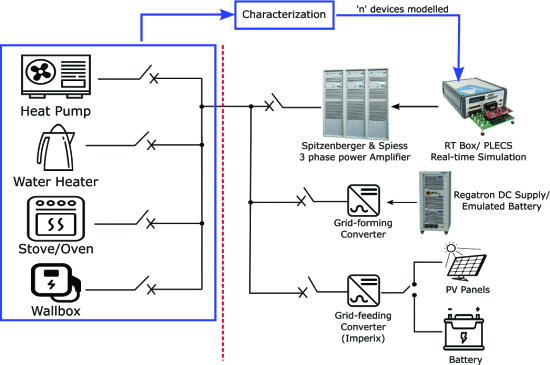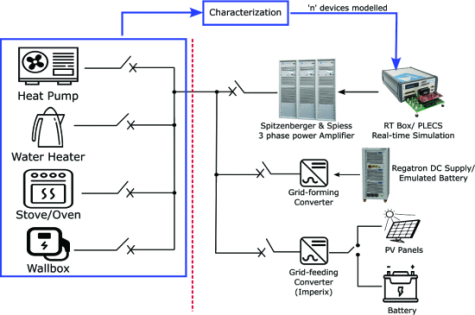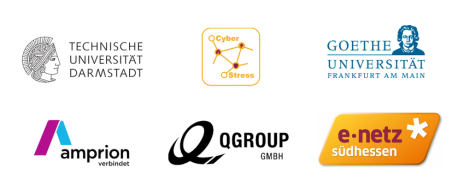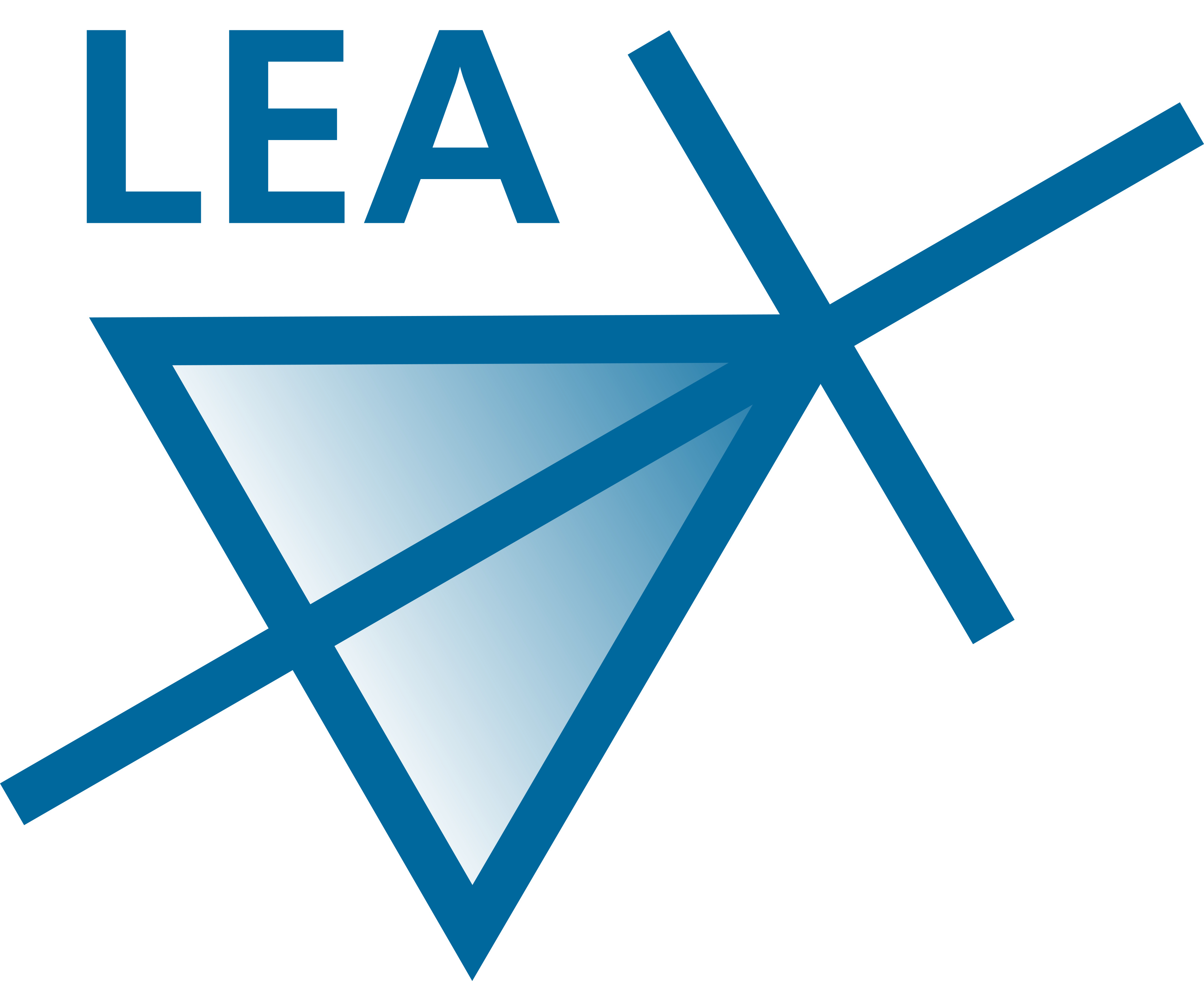
CyberStress: Model-based Stress Tests for cyber-secure Energy Networks
The CyberStress project aims to develop a concept to transfer the idea of stress tests to the electricity sector. In addition to the development of a general stress test methodology, the first exemplary stress test for the scenario „IT attack on distributed devices with high power outside the control of the grid operators“ will be examined in more detail. The research work of CyberStress will be conducted jointly by the partners combining their diverse expertise. The research will first define the requirements and relevant scenarios of such an energy sector stress test. Further, a multi-level model of the energy sector regarding electricity, information, and economics is proposed, and new algorithmic approaches are developed for identifying critical players in the sector. Possible damage effect chains of the scenarios and corresponding countermeasures are identified and modeled for the different levels of the energy sector. This quantitative modeling is accompanied by studying and proposing an organizational and legal framework for such stress tests. Finally, a stress test for an exemplary representation of the energy sector is conducted according to the defined scenarios.
The project will provide the national regulatory authorities with an academically and realistically sound methodology for designing and conducting stress tests for the power system. Utilizing such a stress test of the power system, focusing at first on distributed IoT cyberattacks, the security of supply and the protection of society will be strengthened.
Institute of Power Electronics and Control of Drives has developed and delivered a testbed demonstrator for realizing and analyzing different kind of attack scenarios. Within the context of the design and development of the demonstrator, the following major tasks were done:
- Concept, design and fabrication of the demonstrator that included different converters, three-phase power amplifier, and different IOT-enabled devices.
- Implementation of several different types of controllers for grid-connected converters using different modulation techniques (SPWM, SVM, DPWM, etc.), including PI control in dq-frame, PR controller in the stationary reference frame, and repetitive current control.
- Hardware development of carrier board for interfacing Imperix's B-Board PRO controller with customized Siemens S120 inverter's power stage and internal ADC measurements
- Design and implementation of hardware protections by enforcing module current output and DC link voltage limits directly on the FPGA for safe shutdown in case of limit violation
- Design and testing of different controllers on DSP of Imperix's TPI8032 Inverter
- Implementation of different converter topologies and grid models on PLECS-RT Box2 for real-time testing of control algorithms in Controller hardware-in-the-loop (C-HIL) simulations
- Commissioning of three-phase amplifier supplied by Spitzenberger and Spiess and its connection to the demonstrator


Project Partners
|
TU Darmstadt Institute for Power Electronics and Control of Drives |
Prof. Dr.-Ing Gerd Griepentrog Adeel Jamal., M.Sc |
| Goethe-Universität Frankfurt am Main | |
| e-netz Südhessen AG | |
| QGroup GmbH | |
| Federal Network Agency | |
| Amprion GmbH |




